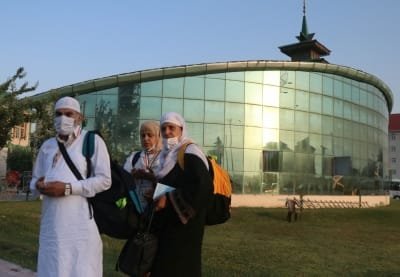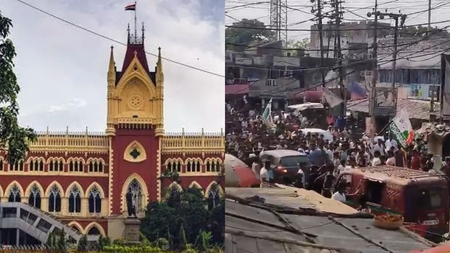
New Delhi, June 9 (IANS) Government sources and foreign policy experts on Monday debunked certain reports and claims made by some opposition leaders about a Saudi Arabia visa halt restricting travellers from 14 countries, including India, asserting that the temporary decision would not affect the sturdy relationship between both nations.
Saudi Arabia’s decision to temporarily halt Umrah, business, and family visit visas for 14 countries, including India, from April to June 2025 to manage the massive Haj crowds and ensure safety, was even labelled as a “steady collapse of India’s foreign policy” by some opposition leaders.
However, government sources have made it clear that the suspension is a result of logistical, not political, compulsions as restrictions have been imposed on granting short-term visas to avoid overcrowding during the Haj season.
Nationals of Algeria, Bangladesh, Egypt, Ethiopia, India, Indonesia, Iraq, Jordan, Morocco, Nigeria, Pakistan, Sudan, Tunisia, Yemen holding or applying for a Saudi visit visa for business, tourism and family visits cannot enter Saudi Arabia until a temporary entry restriction is over, which could last until the end of June when the Haj season is expected to end. This latest measure follows additional restrictions introduced in February 2025, which limits one-year multiple-entry visas for business, tourism, and family visits for the same group of nationalities.
Saudi authorities, which strictly controls Haj, have stated that multiple-entry visas were being misused. Some travellers entered the country on long-term visas but remained illegally for work or performed Haj without proper authorization.
The over-crowding has also become a serious issue due to unauthorised pilgrims using long-term visit visas to bypass restrictions. This issue became particularly alarming in June 2024 when over 1300 pilgrims died due to overcrowding and extreme heat as temperatures exceeded 50 degree Celsius. Saudi authorities believe unregistered pilgrims significantly contributed to the crisis, necessitating tighter visa regulations. By restricting travel to single-entry visas, the Saudi government aims to ensure that only authorized pilgrims perform Haj, reducing risks associated with unregulated attendance.
Saudi Arabia has called this suspension a temporary measure, but no timeline has been provided for a review. The Saudi government will monitor the impact before making further decisions.
Despite such temporary restrictions, the Saudi government remains focused on expanding tourism with India under the Vision 2030 initiative. The bilateral trade between the two countries touched USD $43.36 billion in FY-2023-24. During Prime Minister Narendra Modi’s visit to the country last month, India and Saudi Arabia signed USD $100 billion worth of agreements in energy, infrastructure, security, and innovation sectors, strengthening bilateral trade and investment relations.
India’s fifth-largest trading partner, Saudi Arabia continues to align its economic priorities amidst global market turbulence and energy realignments.
Highlighting India’s rising global stature, experts also point out the country’s emergence as a “Vishwa Bandhu” in a divided world.
They recalled that India’s G20 Presidency in November 2023 was a reflection, recommitment and rejuvenation of the spirit of ‘Vasudhaiva Kutumbakam’ or ‘One Earth, One Family, One Future’. Under its Presidency, India sought to offer the world an alternative to the status quo, a shift from a GDP-centric to human-centric progress.
PM Modi has stated that India’s growing profile is due to its cultural image, growing capabilities, and foreign policy.
On the other hand, Beijing and Islamabad’s repeated attempts to seize opportunity to reassert their self-assigned roles have been rejected by the international community, time and again.
Pakistan’s desperate efforts to include strong anti-India references on Kashmir at the 19th Conference of the Parliamentary Union of OIC (Organisation of Islamic Cooperation) Member States in Jakarta last month also failed miserably.
In the following weeks, India’s Operation Sindoor diplomatic outreach, for the first time in independent India’s history, delivered a clear message to Pakistan that its support for cross-border terrorism would no longer be tolerated and would be met with a strong military response.
The visits were marked by high-level engagements as several top leaders across the world backed India’s resolute commitment to the policy of zero tolerance on the issue of cross-border terrorism.
–IANS
scor/as






